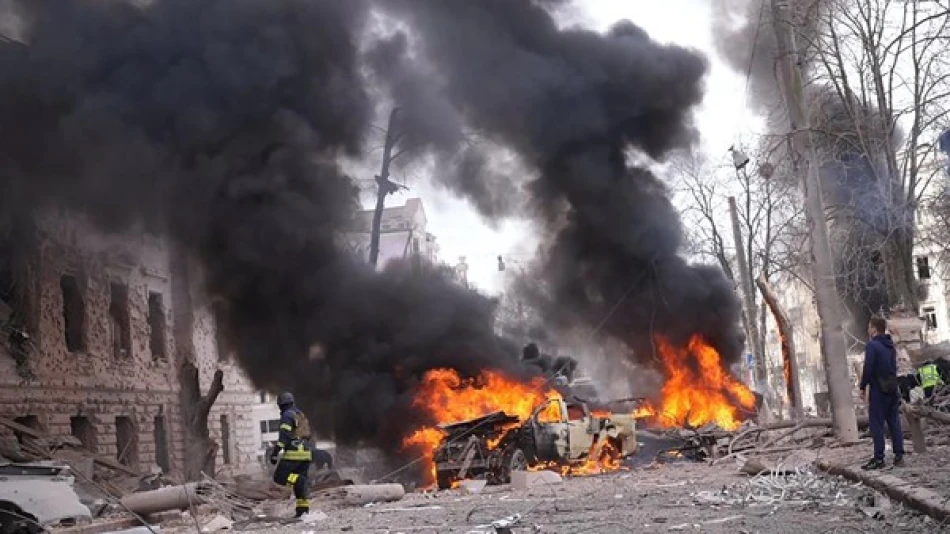
Russia Seizes Control of Two Settlements in Donetsk, Escalating Tensions in Eastern Ukraine
Russia Advances in Eastern Ukraine as Trump's Mediation Efforts Stall
Russia announced the capture of two villages in Ukraine's Donetsk region on Saturday, marking continued territorial gains as diplomatic efforts to end the nearly three-year conflict face new uncertainty. The development comes as President Trump's promised mediation hits obstacles, with the U.S. leader threatening "important" decisions within two weeks that could include fresh sanctions on Moscow.
Strategic Villages Fall as Russian Forces Push West
The Russian Defense Ministry confirmed via Telegram that its forces had seized control of the villages of Serednie and Kleban-Byk in the Donetsk region. The capture of Kleban-Byk represents a particularly significant tactical advance, positioning Russian forces closer to the strategically important city of Kostiantynivka.
Kostiantynivka sits along a critical supply route to Kramatorsk, which houses a major logistical base for Ukrainian forces. This positioning could potentially disrupt Ukrainian military operations in the broader Donetsk region, where Russia has steadily expanded its territorial control over recent months.
Momentum Shifts on the Battlefield
These latest gains reflect a broader pattern of Russian territorial advances that have accelerated since late 2024. Unlike the largely static front lines that characterized much of 2023, Russian forces have demonstrated renewed offensive capability, systematically targeting smaller settlements to create corridors toward larger strategic objectives.
The methodical approach mirrors Russia's successful tactics in other contested areas, where incremental village-by-village advances eventually culminated in the capture of significant urban centers. For Ukraine, each lost settlement represents not just territory but also critical defensive positions that become increasingly difficult to reclaim.
Trump's Diplomatic Gambit Faces Reality Check
The battlefield developments coincide with growing uncertainty around President Trump's promised role as mediator between Moscow and Kyiv. Trump's Friday announcement of an impending "important decision" within two weeks suggests his initial confidence in quickly resolving the conflict may be giving way to the complex realities of the war.
The potential for new U.S. sanctions on Russia indicates that Trump's administration may be recognizing what previous efforts have demonstrated: Putin's government responds primarily to pressure rather than incentives. This represents a notable shift from Trump's earlier suggestions that personal relationships could unlock a swift resolution.
Diminishing Prospects for Direct Talks
The likelihood of a Putin-Zelensky summit appears increasingly remote as both leaders maintain incompatible positions. Putin's recent territorial gains strengthen his negotiating position while reducing incentives to make concessions, while Zelensky faces domestic pressure not to legitimize Russian conquests through direct negotiations.
This dynamic has historically characterized the conflict's diplomatic phases: military momentum on the ground directly influences each side's willingness to engage in meaningful talks. With Russia currently holding the tactical advantage, Moscow has little motivation to freeze current positions through negotiations.
Implications for Western Strategy
The continued Russian advances pose challenging questions for Western supporters of Ukraine, particularly regarding the sustainability of current military aid levels and strategic objectives. As the conflict approaches its third anniversary, the gap between stated goals of Ukrainian territorial restoration and battlefield realities continues to widen.
Trump's apparent pivot toward a more confrontational approach with Russia may signal recognition that his campaign promises of rapid conflict resolution were overly optimistic. The threatened sanctions suggest his administration may ultimately adopt policies more similar to his predecessor's approach than initially anticipated.
Most Viewed News

 Layla Al Mansoori
Layla Al Mansoori






